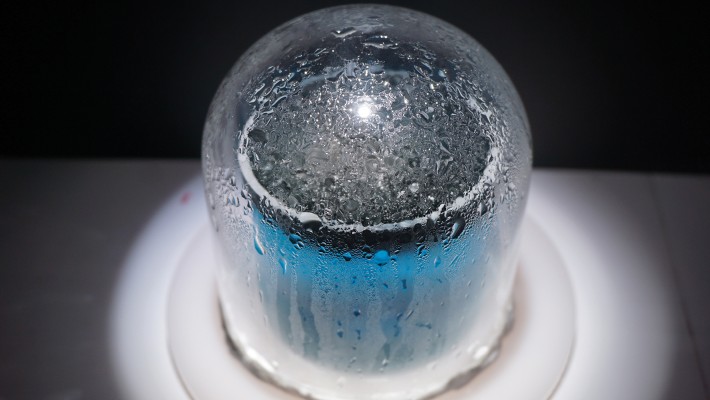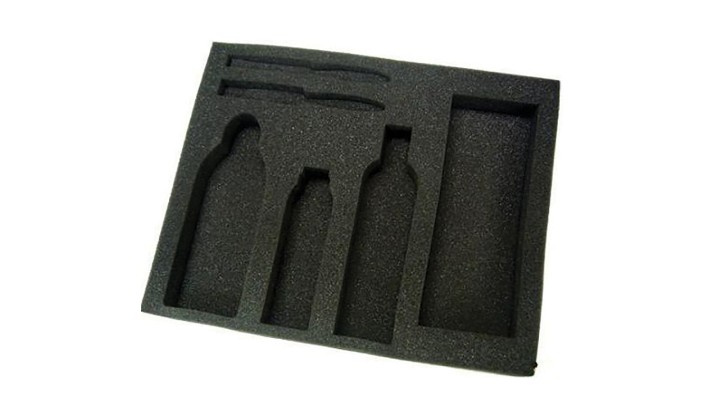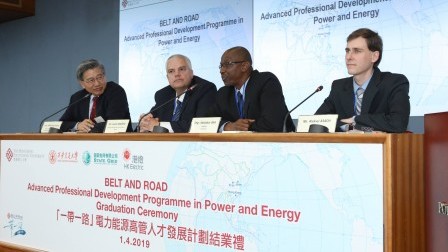Upcycling packaging foam to accelerate fresh water production
Although 70% of the Earth is covered water, yet only 3% is fresh water. Experts predict that by 2025, two-thirds of the world’s population may suffer from water shortage. The situation is worrisome.
Existing wastewater recycling and seawater desalinating technologies entail high costs and require the use of large scale facilities.To tackle this problem, Dr Tsang Yuen-hong of the Department of Applied Physics came up with an idea of using upcycled black-coloured waste foam as a solar absorber for effective vapour generation. A solar absorber can capture solar heat when floating on water surface. When water is heated up, evaporation will occur. By placing the black foam on top of the device, more evaporation will be generated. The team further discovered that when the foam was treated with dopamine, its wettability would be increased for even more effective water evaporation. The water vapour generated will condense on the inner top cover of the device as distilled water. Experiments have shown that the use of dopamine-treated black foam increases water evaporation on the surface by more than 3.5 times.
This simple, convenient, low cost and environmentally friendly waste sponge solar absorber won a silver medal in the 1st Asia Exhibition of Inventions Hong Kong.







